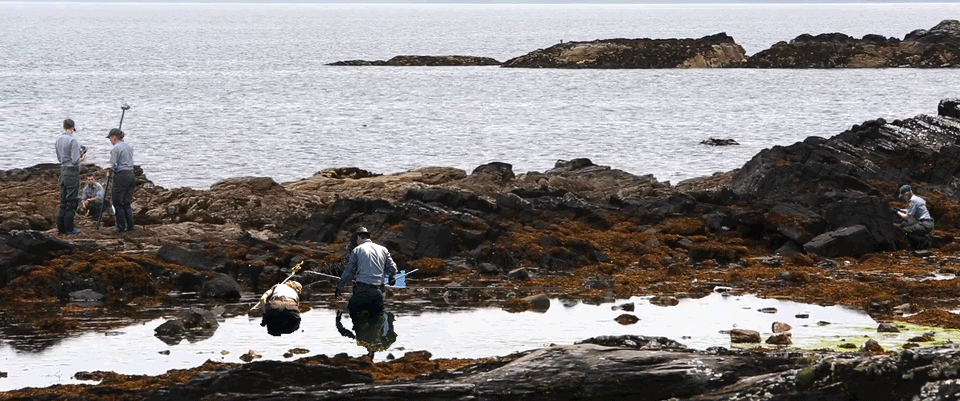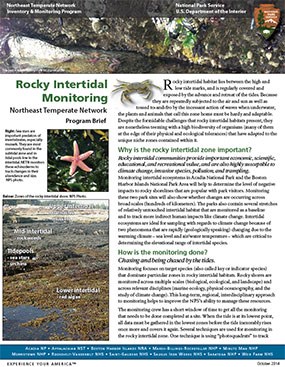

Overview
The rocky intertidal zone is a unique habitat that is used by a variety of endemic plant and animal species, many of them at the edge of their physical and ecological tolerances. These species are important food for birds and mammals that forage along the shoreline, and several have commercial value. NETN monitors intertidal habitats in Acadia National Park and Boston Harbor Islands National Recreation Area. The primary objectives of this program are to: • Determine long-term changes of target invertebrate and macroalgal species • Evaluate long-term changes in the intertidal community to long-term changes in environmental factors (e.g., sea level rise, human trampling, etc). Northeast Temperate Network Rocky Intertidal Monitoring MaterialsClick on the links below to view protocols, reports, briefs, and other materialsSource: NPS DataStore Saved Search 1094. To search for additional information, visit the NPS DataStore. Source: NPS DataStore Saved Search 2233. To search for additional information, visit the NPS DataStore. Source: NPS DataStore Saved Search 1831. To search for additional information, visit the NPS DataStore. Source: NPS DataStore Saved Search 2284. To search for additional information, visit the NPS DataStore. Rocky Intertidal Monitoring Locations for Participating ParksStaff Contacts for Rocky Intertidal MonitoringProgram Manager: Aaron WeedData Manager: Adam Kozlowski Science Communication Specialist: Ed Sharron |
Last updated: September 22, 2025
